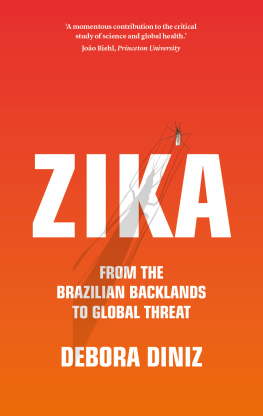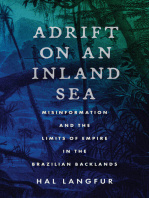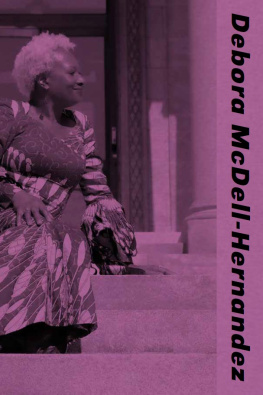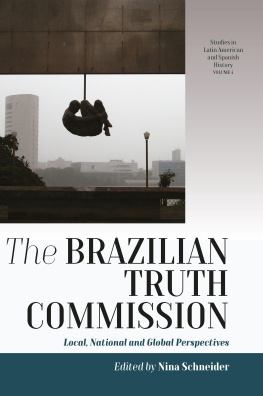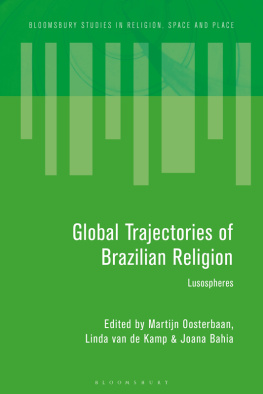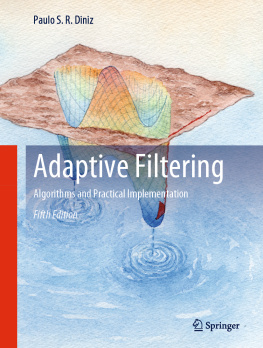Diniz Debora - Zika - from the brazilian backlands to global threat
Here you can read online Diniz Debora - Zika - from the brazilian backlands to global threat full text of the book (entire story) in english for free. Download pdf and epub, get meaning, cover and reviews about this ebook. City: Zed Books Ltd, year: 2017, publisher: National Book Network International, genre: Detective and thriller. Description of the work, (preface) as well as reviews are available. Best literature library LitArk.com created for fans of good reading and offers a wide selection of genres:
Romance novel
Science fiction
Adventure
Detective
Science
History
Home and family
Prose
Art
Politics
Computer
Non-fiction
Religion
Business
Children
Humor
Choose a favorite category and find really read worthwhile books. Enjoy immersion in the world of imagination, feel the emotions of the characters or learn something new for yourself, make an fascinating discovery.
- Book:Zika - from the brazilian backlands to global threat
- Author:
- Publisher:National Book Network International
- Genre:
- Year:2017
- City:Zed Books Ltd
- Rating:5 / 5
- Favourites:Add to favourites
- Your mark:
- 100
- 1
- 2
- 3
- 4
- 5
Zika - from the brazilian backlands to global threat: summary, description and annotation
We offer to read an annotation, description, summary or preface (depends on what the author of the book "Zika - from the brazilian backlands to global threat" wrote himself). If you haven't found the necessary information about the book — write in the comments, we will try to find it.
Zika - from the brazilian backlands to global threat — read online for free the complete book (whole text) full work
Below is the text of the book, divided by pages. System saving the place of the last page read, allows you to conveniently read the book "Zika - from the brazilian backlands to global threat" online for free, without having to search again every time where you left off. Put a bookmark, and you can go to the page where you finished reading at any time.
Font size:
Interval:
Bookmark:

A compassionate and inclusive look at the impact of the Zika epidemic: from the mothers of affected babies to the race for an effective treatment.
Laura Rodrigues, London School of Hygiene & Tropical Medicine
Ingeniously crafted and affectingly narrated, Zika is a momentous contribution to the critical study of science and global health.
Joo Biehl, Princeton University
Diniz illustrates the devastating effects that Zikas spread has had on impoverished women, and how government scientists and policy makers failed to live up to their responsibilities toward those affected. A brilliant read, highly recommended!
Udo Schuklenk, Queens University, Canada
ZIKA
FROM THE BRAZILIAN BACKLANDS TO GLOBAL THREAT
DEBORA DINIZ
Translated by Diane Grosklaus Whitty

Zika: From the Brazilian Backlands to Global Threat was first published in English in 2017 by Zed Books Ltd, The Foundry, Oval Way, London SE RR, UK.
www.zedbooks.net
Copyright Debora Diniz 2016
English language translation Diane Grosklaus Whitty 2017
First published in Brazil by Civilizao Brasileria
Rights for this edition negotiated via Seibel Publishing Services Ltd.
The right of Debora Diniz to be identified as the author of this work has been asserted by her in accordance with the Copyright, Designs and Patents Act, 1988
Typeset in Adobe Caslon Pro and Eurostile-Condensed by Swales & Willis Ltd, Exeter, Devon
Fact checkers: Gabriela Rondon, Luciana Brito, Sinara Gumieri
Librarian: Illy Batista
Cover design by Keith Dodds
All rights reserved. No part of this publication may be reproduced, stored in a retrieval system or transmitted in any form or by any means, electronic, mechanical, photocopying or otherwise, without the prior permission of Zed Books Ltd.
A catalogue record for this book is available from the British Library.
ISBN - - 78699 - - hb
ISBN - - 78699 - - pb
ISBN - - 78699 - - pdf
ISBN - - 78699 - - epub
ISBN - - 78699 - - mobi
CONTENTS
This book bears witness to the first year of the Zika virus epidemic in Brazil. The story was constructed from the oral accounts of dozens of women, doctors, and scientists as well as from Brazilian and international press reports and a vast amount of academic scholarship. I could not have written it in such timely fashion without the assistance of countless individuals too many to be named in this brief space. All I can say is that you were essential. Thank you. In particular, I am grateful to the doctors and scientists who were so generous in explaining epidemiological and biomedical jargon to me and shedding light on controversies, and who had me watch everything from laboratory procedures to deliveries. All of them manifested a genuine desire to share their stories. I hope I have honored their enormous vote of confidence. I have only one person to thank for the English translation, Diane Grosklaus Whitty, without whom the words and ideas in these pages would have remained entangled in the Brazilian mind. Lastly, I thank every single woman who told me her story, welcomed me into her home, and asked me to write this book so neither she nor her child would be forgotten. I dont know if I managed to accomplish this weighty mission, but here is my promise to tell their story.
Most of the voices you will hear in these pages belong to people who live in an obscure corner of the world that is generally ignored by the rest of us. Brazils 2015 Zika epidemic cast them into a temporary spotlight, only to leave behind a trail of destruction. It also left them with a story to tell. Debora Diniz gave these voices a stage in the original Portuguese version of this book and then entrusted me with the task of enabling them to be understood by English readers.
In translation, the question is always how best to accomplish this task. Debora agreed with me that fluency was paramount, so readers could immerse themselves in an unknown culture without feeling like intimidated immigrants struggling to stay afloat. In some cases, this meant adding to the text, for example, providing background on Fiocruz, Brazils giant public health foundation, or painting a brief portrait of Northeast Brazil, the setting for much of the action. In others, it meant subtracting. For instance, a few side notes and allusions that would easily be understood by Brazilians but require a convoluted explanation for a foreign audience were eliminated. In still other cases, it entailed interpreting more than translating, as when the geographical reference Alto Serto, Serto, and Cariri (not immediately clear even to most Brazilians outside the Northeast) was simplified to rural Paraba. Whether I was adding, subtracting, or interpreting, the goal was to remove distractions from the narrative itself, and the changes were always made with Deboras agreement and often assistance.
Perhaps most importantly, the linguistic differences between Portuguese and English are not limited to the words or sentence structures in which ideas come cloaked. Narration itself has its own mind in each language. Brazilian readers move effortlessly from historical present to past and then back again, sometimes within one paragraph. Try this in English and your reader will soon be flipping pages, trying to figure out when the action takes place. In weaving a tale where several threads play out simultaneously, Debora could allow herself great leeway in Portuguese, shifting easily not only between verb tenses but also between settings and timeframes. Since the English-speaking mind demands greater linearity, some sections of the book underwent significant re-organization. Again, Debora was in wholehearted agreement about tearing down any barriers between story and audience, and she signed off on all changes.
This is not to say that the book has been stripped of all Brazilianness. Readers will learn of the evil eye, the Feast of St Johns day in rural Paraba, the geographical hierarchy within the Brazilian scientific community. Moreover, the story itself is steeped in the flavor of Brazil, from the way science was done to how people interacted. It is in the realm of these human interactions that readers will find the most foreignized facet of this translation: the characters have retained the names by which they are known in Brazil. Dr Kleber Luz does not become Dr Luz or Luz, as in international press reports, but remains Dr Kleber. Many of these people shared deeply personal memories with Debora, and I felt that to rename them would somehow be a betrayal of their trust.
In closing, my thanks to my husband Michael, whose insights, linguistic and otherwise, make him my prime sounding board and first reader. Immense thanks as well to Debora, for trusting me to re-tell this story in English. And like the author, I hope my words will do justice to the voices of the women and men portrayed here.
THE MOTHERS
Gssica Eduardo dos Santos
Mother of Guilherme, who was born with microcephaly and died shortly after birth, in February 2016 . Gssica donated her sons body to research and his baby things to another baby born with microcephaly. She lives in Juazeirinho, in rural Paraba.
Maria da Conceio Alcantara Oliveira Matias (Conceio)
Mother of Catarina Maria, born with microcephaly in February 2016 . A physical therapist, Conceio now dedicates herself to providing her daughter with early stimulation. She lives in Juazeirinho, in rural Paraba.
Sofia Tezza
Italian woman who was infected by Zika while pregnant and living in Brazil. Sofia lost her baby in October 2015 and donated him to research. Slovenian scientists found the Zika virus in his body, proof of vertical transmission.
Font size:
Interval:
Bookmark:
Similar books «Zika - from the brazilian backlands to global threat»
Look at similar books to Zika - from the brazilian backlands to global threat. We have selected literature similar in name and meaning in the hope of providing readers with more options to find new, interesting, not yet read works.
Discussion, reviews of the book Zika - from the brazilian backlands to global threat and just readers' own opinions. Leave your comments, write what you think about the work, its meaning or the main characters. Specify what exactly you liked and what you didn't like, and why you think so.

